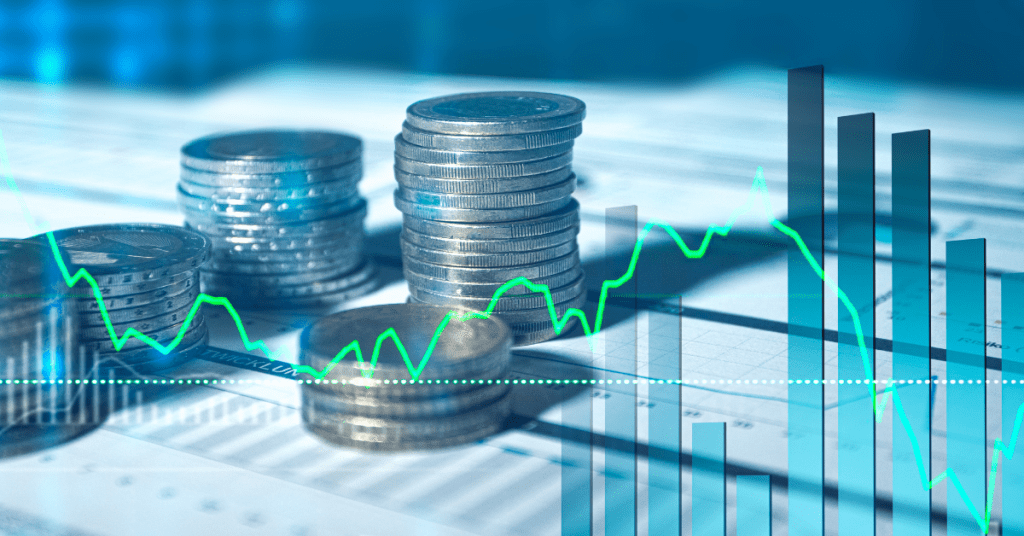2022 was a hot year for the climate. The past eight years are expected to become the eighth warmest on record, driven by rising greenhouse gas emissions and accumulated heat. In turn, this has taken a heavy toll on the sea level rising, European glacier melting, and extreme weather events from wildfires to floodings.
As society increasingly wakes up to the impact of climate change, so does the business world. In 2022, companies have been met with increased scrutiny by regulatory authorities and investors when it comes to their sustainability impact, and have faced greenwashing backlashes when making unsupported sustainability claims.
The Recursive newsroom will be watching for the following sustainability trends in 2023:
- Standardized non-financial reporting
- Regulated sustainability investing
- Higher reliance on renewables and energy efficiency solutions
- Increased variety and adoption of plant-based and ethically-sourced food
- The race to sustainable mobility
Business sustainability trends in 2023
#1 Standardized non-financial reporting

Last year, we were seeing an increasing demand for non-financial reporting from different types of businesses, driven by a new European Climate Law and a taxonomy for sustainable activities to guide investment toward more socially responsible businesses.
The setting of standards to simplify but also strengthen sustainability reporting and evaluation processes has been long debated before 2022 finally brought the EU’s approval of the corporate sustainability reporting directive (CSRD). The new directive revises and advances the existing rules set by the 2014 non-financial reporting directive (NFRD) following the EU’s heightened commitments to a green economy transition.
The reporting rules will apply to start with the financial year 2024 for companies already subject to the NFRD, and will gradually apply to large companies and all companies included on regulated markets (including small and medium-sized enterprises), except listed micro undertakings.
In practice, companies will be subject to more detailed reporting requirements on sustainability matters, such as environmental protection, social and human rights, and governance factors. Businesses will need to report on how their business model affects their sustainability, as well as how external sustainability drives (such as climate change) impact their activities.
In turn, this enhanced accountability from companies will equip their stakeholders with better information to guide their investment and purchasing decisions, essentially giving them more power over businesses. This leads us to the next item on our list of sustainability trends in 2023: regulated sustainability investing.
#2 Regulated sustainability investing

In the past few years, sustainability investing – funding directed towards assets that bring some level of environmental or social impact – has soared to record levels. ESG assets (Ed.note with environmental, social, and governance impact factors) reached $37.8 trillion by the end of 2021, with half accounted for by Europe. Sustainability investing is no longer niche. Yet, will it continue to rise in 2023?
In 2021, climate tech investing in particular has gained momentum among private equity investors. Over the first three quarters of 2022, however, venture funding for climate tech fell to $52 billion, which is 30% less vs. the previous year. According to PwC, the volume of funding directed at early stages to scale up the next wave of climate tech solutions is trending in the wrong direction, possibly because of the cyclicality present elsewhere in corporate deal-making.
The recent slowdown in the overall venture capital market doesn’t seem to detract investors from investments in climate tech and other sustainability-aimed solutions. A quarter of overall invested equity between Q3 2021 – Q3 2022 went to climate tech. And tech investors mentioned sustainability as one of the key trends they will follow in 2023.
Contributing to this momentum is the EU’s Sustainable Finance Disclosure Regulation (SFDR), which requires financiers to disclose sustainability information and classifies funds based on the extent to which they integrate sustainability requirements in their investment processes. While so far ESG funds have operated with limited regulatory guidance, the SDFR aims to bring more transparency, help prevent greenwashing, and increase the accountability of investors.
In Central and Eastern Europe, we expect to see more investors aligning with the standards defined under the SFDR Article 9 – funds that have sustainable investment or a reduction in carbon emissions as their goal, as well as more complex processes of evaluating, selecting, and monitoring portfolio companies in terms of their sustainability impact.
#3 Higher reliance on renewables and energy efficiency solutions

Over the past year, geopolitical conflicts intensified and led to a shortage of fossil fuels in a Russia-dependent European energy system, which is now looking to regain its independence. The resulting soaring energy prices have fuelled the search for energy savings as companies and individuals seek to cut down costs.
These factors are likely to lead to an increase in the use of renewable energy, through new and existing capacities. For homeowners, installing a renewable energy system can provide an independent energy source of heat and/or electricity. This potential of renewables has given rise to a new business model in the energy sector: prosumers, whereby homeowners are both consumers and producers of extra energy that they can sell to other grid participants.
In Romania, the number of prosumers has skyrocketed in recent years and is expected to reach 30K by the end of 2022. The recent reduction of the VAT on photovoltaic panels will likely further drive this trend.
Soaring energy prices are also leading to an acceleration of energy efficiency solutions, from IoT products to heat pumps, construction materials that provide insulation, and even smaller-sized houses.
Heat pumps are a particularly efficient solution for energy saving, offering three to five times more energy than natural gas boilers. Even though they accounted for only 10% of space heating globally in 2021, sales are growing fast, particularly in Central and Eastern Europe. In 2021, sales have been growing 15% globally and 66% in Poland.
CEE companies to look for in 2023: Rhoé, AMEN New Technologies, domX, HAM Systems, AE Solar Horizon, Cooperativa de Energie, Energy Vampires, NRGI.ai, Ogre AI, Perceptual Robotics, Restart Energy, Solar Plex, RoPower Nuclear, TokWise, Typhoon HIL, Volta X Solar Systems, Globe Green Energy, mTap Smart City, Resalta, SolHotAir
#4 Increased variety and adoption of plant-based and ethically-sourced food

One of the sustainability trends in 2023 that investors will be watching closely is food tech. Specifically, at a global level, forecasts show the plant-based protein alternatives market swelling to $166 billion by 2031, or 7.7% of the protein market.
Preference for vegan and vegetarian products is expected to increase as food producers come more and more under scrutiny for carbon-intensive and/ or unethical practices; costs become more competitive compared to animal-derived products; spending power continues to shift to more eco-conscious and ethically-minded Millennials and Gen Zs; and retailers comply by offering a richer variety of plant-based alternatives, increasing convenience.
Different benefits of choosing a plant-based diet, and indeed lifestyle, are appealing to different consumer values. A plant-based diet uses less land and water and produces fewer carbon emissions, thus reducing one’s environmental impact. For instance, plant-based meat alternatives could save 30-90% of greenhouse gas emissions and 47-99% of land use compared to animal-derived meats.
R&D and innovation directed at plant-based meat alternatives have been helping the sector drive down costs, improve taste and diversity, and reach a similar level of usability and convenience. In Central and Eastern Europe, we have witnessed a rise in food startups in recent years – especially in making plant-based protein alternatives, from plant-based salmon sashimi to award-winning veggie burgers. And according to investors, they will be following the food tech vertical closely in 2023.
Otherwise, consumers may choose a vegan or vegetarian lifestyle as a way to spare animals from being slaughtered or harmed in any way for human needs. Cell-based, lab-grown meat is rising as a solution to avoid animal exploitation, as it only requires stem cells from animals that are then grown in a pressure cooker in predetermined shapes. Another key driver of cultured meat is its independence from land resources, which has made it particularly resourceful in Singapore, where cultivated chicken meat is commercially available.
Cultured meat got closer to global adoption earlier in 2022 when the Food and Drug Administration (FDA) gave regulatory clearance to a Californian startup for its lab-grown chicken. In the following years, we expect to see similar developments in Europe.
CEE companies to look for in 2023: Bluana Foods, Verdino Green Foods, Cultured Foods, Cultured Foods, Smart Organic, Lunter, and Soul Meats.
#5 The race to sustainable mobility

Transportation and mobility accounted for the lion’s share (61%) of climate tech investment in 2021. This has been mostly driven by the transition to electric vehicles and other low-carbon vehicles. Transportation contributes to around 16% of global CO2 emissions and even though this is less than other sectors’ footprints, it has been nonetheless growing fast over the years. As such, electrifying transport systems is an essential part of the net zero transition.
Once ruled out as a viable mode of transport, EVs are becoming commonplace on the roads and highways of Europe, with several countries – as well as automakers – committing to ambitious targets for EV adoption by 2030. It needs to be noted though that the global shortage of chips and other materials, as well as supply chain disruptions caused by the pandemics and geopolitical conflicts, will likely continue to slow down the production and delivery of EVs compared to expected levels.
Aside from electric cars, the pressure on cities to transition to less polluting modes of transportation and relieve traffic congestion has stimulated efforts to increase the availability of public transportation and bike routes, as well as ban car use at high-peak times and in high-traffic areas. We expect to see these trends continuing in 2023.
Finally, a transition to a predominantly electric transportation system requires having the right infrastructure in place, starting with e-charging points and stations. More and more stakeholders are entering this market, bringing battery and service station innovations that increase the convenience and cost-competitiveness of EVs compared to traditional vehicles.
CEE companies to look for in 2023: Dacia, ATP Trucks Automobile, Rimac Automobili, Kinetik Automotive, Econic One, Give Engineering, Greyp Bikes, SPARK Technologies, Autonom, Hobo, Ride Splash, Instacar, Teleport, Cyrcl, AMPECO, ELBUL, LEKTRI.CO, WATTO Stations, Renovatio








